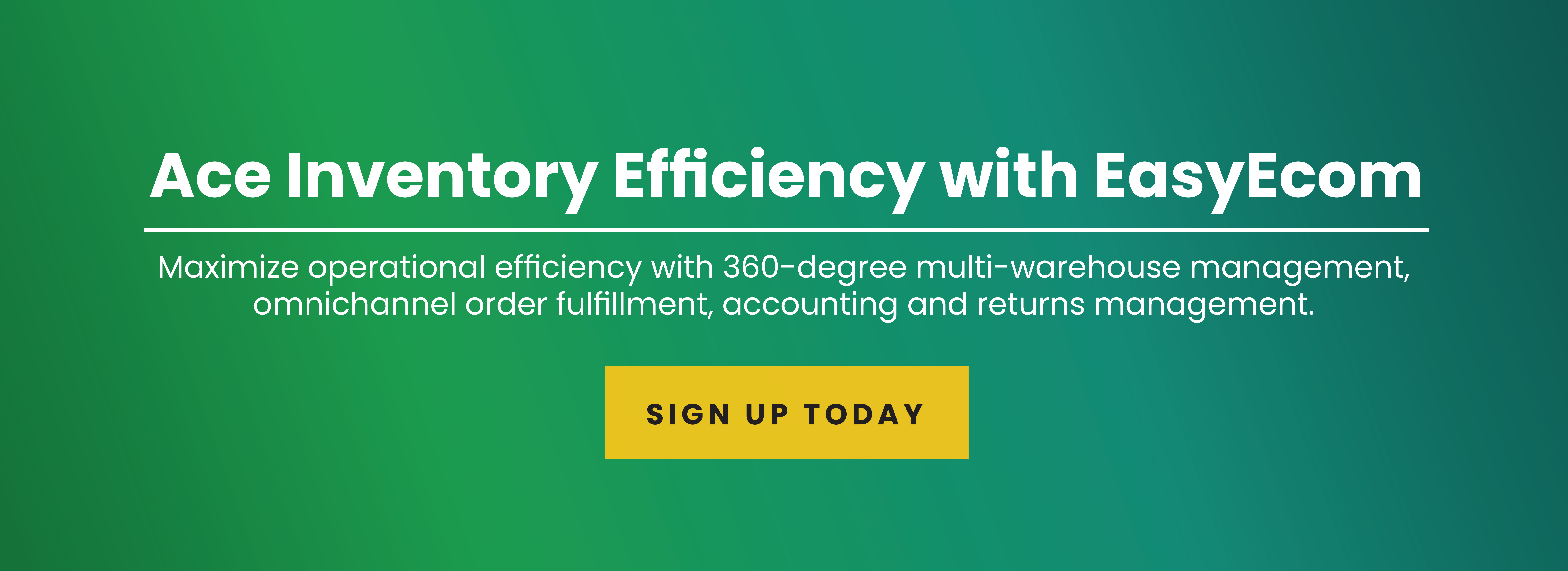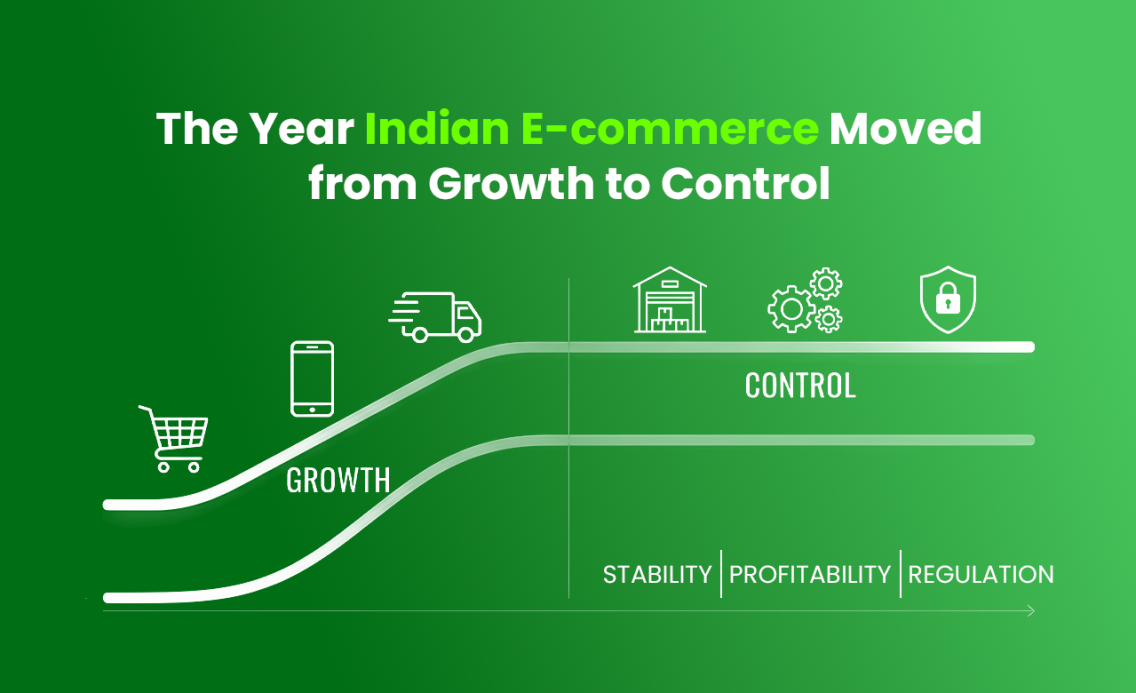eCommerce is at the centre of modern retail today and customers' expectations from it are skyrocketing. With a whole world of choice at their fingertips (quite literally), customers can switch loyalties at the drop of a hat. That is why it is critical for brands to provide the best service, from order to fulfilment to after-sales.
The speed of delivery is of utmost importance to customers and plays a major role in their purchase decision. Same-day delivery, next-day delivery, and click-and-collect are now the norms. In fact, a Voxware study reports that ~70% of customers are unlikely to repeat a purchase from a retailer if delivery exceeds 2 days.
So what is the key to being on the safe side of shipping SLAs, satisfying the needs of an increasingly instant-gratification economy?
In this blog, we have covered the various strategies your brand can apply to streamline their shipping process, and in turn, improve customer satisfaction.

Why eCommerce Integrations Are Essential
Order fulfillment involves multiple people, processes, and technologies. It includes online checkout processes, payment providers, order management and picking, packing, shipping, and delivery. Between the order being placed to the final delivery, there are so many things that can go wrong if the fulfillment is not done meticulously. However, with the ever-evolving logistics ecosystem, today, e-commerce businesses can find multiple solutions to optimize their delivery process.
For small businesses, investing in a reliable shipping software is a good first step into automation. It helps retailers organize and process all their online orders, compare carrier rates, and create shipping labels. If your business has just started out and is gradually seeing sales increase, shipping softwares is a cost -effective method to handle the most error-prone part of shipping.
In order to have accurate data and accelerate order fulfillment, it is very important to use a system integration software to connect the ERP (Enterprise Resource Planning) with the e-commerce platform and 3PL or shipping software. Without a seamless integration in place, keeping a track of inventory and shipments becomes a time-consuming process since you will have to manually record SKU information. This also increases the chances of manual error, eventually affecting business decisions.

To enjoy seamless integration of all business operations, many brands use EasyEcom’s centralized inventory management system. EasyEcom connects all your sales channels, logistics partners and ERP platforms on a single platform. This has helped multiple brands streamline their inventory management, warehouse management, order fulfilment, and accounting management.
Outsourcing Logistics Management
Logistics is a very specialized field and requires immense precision that comes from years of experience. Many companies opt for outsourcing their logistics, in order to focus effectively on their core competency and drive business growth.

You can outsource your logistics to a 3PL or a 4PL logistics service provider.
A 3PL or third party logistics is an excellent option for businesses to ensure that this painstaking task is being performed by industry experts. This saves your company the added time and money investment required for building a specialized logistics team and allows them to focus on other important tasks. 3PL offers the option to outsource either a part of the shipping or the entire process from warehouse management to transportation and deliveries.
A 4PL service provider handles entire supply chain management starting from procurement and warehousing to final distribution. It acts as a single point of contact for your supply chain and ensures smooth operations. This saves up business time and effort from managing the supply chain, and gives this ample of resources to focus on their core competencies and grow.

Here’s a list of leading logistics providers:
- TakeOff Technologies: They offer grocery fulfillment solutions, lowering last mile and assembly costs with their automation technology.
- Fabric offers on-demand fast fulfillment for grocery, eCommerce accessories, along with B2B stock replenishment.
- WareIQ promises Amazon-like next day delivery for eCommerce companies in India. They empower brands to run their eCommerce businesses with fulfillment centers near the end customers and tools to maintain control over inventory, orders, and shipments on a unified platform.
- Ohi is an emerging logistics- tech startup offering an “Amazon Prime Now” experience with same day delivery and superior service levels.
- Shopify Fulfillment allows you to select items for fulfillment from the admin panel and ship via their full-service distribution network.
- Shipbob is a tech-powered 3PL that fulfills orders for DTC eCommerce brands. The brand is an end-to-end fulfillment provider that helps improve delivery time, costs, and overall customer experience.
- Ogoship is an eCommerce order fulfillment and returns tracking service that helps eCommerce businesses optimize the supply chain.
Examples of Dropshipping Services
Dropshipping is a business model where companies or retailers buy from vendors (wholesalers and manufacturers), who directly ship the product to the end customer that has placed the order with the retailer.
This is a great option for small retailers that are just starting out, as it does not require to keep any inventory at hand. However, it is important to note that, for long-term growth it is imperative to have reliable vendors. Your vendors are usually invisible in this transaction and a bad experience can lead to negative brand perception.
When it comes to dropshipping services, small and medium eCommerce businesses are spoiled for choice. We'll cover a few leading examples that can kick off your shipping efforts and take a load off.

Doba
Doba is a dropshipping platform connecting retailers and wholesalers with vetted suppliers. You can find and import products to your online store. The supplier directly receives customer orders and ships them straight to them while you get to keep profits from the retail price.
With a 14-day free trial and plans starting at $24.99 a month, Doba’s functionalities include
- Easy integration with eCommerce sites.
- Access to 250,000+ retailers
- Push-to-Marketplace features to simplify eBay listings.
- Intuitive price change and inventory alerts.
- Fully automated integration for high-volume sellers.

Modalyst
Modalyst is an automated dropshipping and print-on-demand app for eCommerce stores running on Shopify,Wix and WooCommerce. It has added 10M products to virtual inventory till date with 350K online businesses.
If you sell <25 products, you can sign up for a zero-cost Hobby plan on Modalyst, and upgrade pricing, which starts at $35/month.
Besides being the official partner for AliExpress offering dropshippers access to a million products, what makes Modalyst a great choice is that it offers
- Real time inventory updates and order tracking
- Bulk product updation to eCommerce stores with the facility for editing prior to addition.
- A14-day refund window from the time of delivery for Modalyst Marketplace orders.
- Single click product syncing that simplifies listing updation and switch ups at a minute’s notice.

Dropshipman
Dropshipman is a Hong Kong based dropshipping automation service that provides low-cost order fulfillment worldwide. You can either create a free account or connect your Shopify store for as little as $10, making it a great choice for beginners who want to scale up.
Functionalities that make Dropshipman a successful dropshipping store are:
- Easy sign up
- Suitable for DTC brands,wholesale sellers,dropshippers and retailers.
- Sourcing requests can be easily made.
- Up to 30 low-cost shipping methods for worldwide delivery
- Custom packaging to cement brand recall
- Free inventory storage with wholesale orders placed with Dropshipman.
Order Fulfillment Transparency
Customers demand transparency. They want to be able to track their shipment in real-time and are eager to know its whereabouts like delivery date, exact location, etc. Customers find it slightly annoying to keep checking on their order using an old-school tracking number. Instead, they appreciate receiving a text or email about it.
A good logistics partner has the facility to provide customers with access to the status of the order through an app on the mobile device.
It is also important to inform customers about delays and prepare them for it. Hence, proactive communication is an essential step to keep customers informed. For this, customer service teams have to be in sync with logistics teams so that they can provide all the information to them in a clear, truthful manner.
Many omnichannel brands provide order tracking updates on their website/app. This not only improves customer experience and reduces reliance on the support team, but also acts as a great marketing tool.
Efficient Returns
With the lines between e-commerce and brick-and-mortar disappearing, customers expect their returns to be as easy as the order placement. For this to materialize, companies need to have a perfect logistics strategy in place. After the order is returned, it has to be restocked into the warehouse, updated in the inventory, and logged into the customer data-based as well. The less time this takes, the faster the refund and happier the customer!
Customers expect instant refunds and again, this can be done with clear communication, an integrated system, and the perfect logistics partner!
Hassle-free returns play a major role in the customer’s buying decision. An automated returns reconciliation component built into the eCommerce environment can help businesses manage their returns in such a way that their inventory can be QC-checked prior to updating listings, ensuring no sales loss.
An example of efficient return handling in action is of Costco’s.
Costco customers experience a quick and painless return experience. To make their order return a seamless task for customers, Costco also provides the option to return online purchases to local stores, even if the store doesn’t carry the returned item.
Costco has entered a partnership with InstaCart to manage online sales and deliveries, as well as the related uptick in returns that usually comes with e-commerce sales.
Shipping and order fulfilment determine the quality of service that a company provides and eventually the brand’s image. It is imperative for brands to have an excellent shipping strategy in place from as early as the business planning stage. Having a clear channel communication with the customers ensures that they make informed purchase decisions, without setting unrealistic delivery goals for the company as well.

.png)












